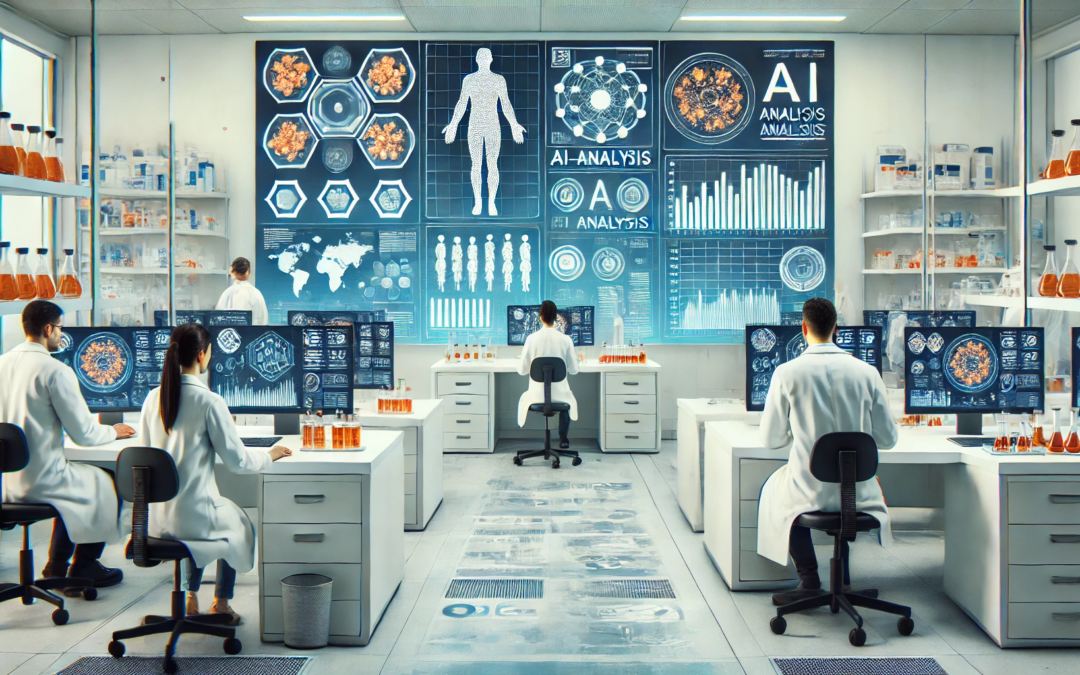By Phil Marshall, PhD, Chief Research Officer at Tolaga Research, for Zero Gap AI
Pharmaceutical research is rapidly evolving with artificial intelligence (AI) and high-performance computing (HPC), ushering in a new era for drug discovery and therapeutics. AI is transforming the industry by accelerating and enhancing various process stages, including target identification, molecule design, drug screening, and clinical trial optimization. High-performance machine learning algorithms can now analyze vast datasets of biological information, identify potential drug targets, and predict molecular interactions with unprecedented speed and accuracy.
In the highly competitive pharmaceutical industry, research organizations must be at the cutting edge of AI, with notable use cases that include:
Virtual screening of large compound libraries with machine learning algorithms rapidly analyzing vast datasets of chemical compounds to identify potential drug candidates with desired properties, significantly accelerating the initial stages of drug development.
- Optimization of lead compounds is enabled by rapidly analyzing and predicting their pharmacokinetic and toxicity profiles, facilitating more efficient selection and refinement of promising drug candidates.
- Novel molecular structure design using generative AI models by learning from vast chemical databases and creating new, tailored compounds with specific properties and targets, expanding the chemical space for potential drug candidates.
- Improved clinical trials by optimizing trial design, patient recruitment and retention, streamlining data management and analysis, accelerating the identification of promising drug candidates, and improving safety and efficacy predictions. These improvements ultimately lead to more efficient, cost-effective, and successful drug development processes.
Today, pharmaceutical companies and research institutions typically employ hybrid HPC architectures that blend on-premises and cloud solutions. Core drug discovery processes commonly use on-premise solutions. On-premise delivers improved data privacy, security, and regulatory compliance and addresses the need for computationally intensive processes. However, these solutions are costly and complex to deploy and maintain and require substantial capital investments, particularly with the rapid obsolescence of AI hardware.Cloud solutions address some of these challenges. However, the cloud introduces data privacy and security concerns. It potentially creates regulatory compliance challenges, introduces expensive migration and egress fees for data-intensive applications, and compromises real-time processing performance.
investments, particularly with the rapid obsolescence of AI hardware.Cloud solutions address some of these challenges. However, the cloud introduces data privacy and security concerns. It potentially creates regulatory compliance challenges, introduces expensive migration and egress fees for data-intensive applications, and compromises real-time processing performance.
Zero Gap AI is a cutting-edge near-premise HPC solution optimized for AI workloads and deployed locally in 36 US markets. It combines many benefits of on-premise operations with cloud computing economics and is supported by partner companies, including Comcast, NVIDIA, SuperMicro, Vast Data, and a range of other Blue Chip companies. In particular, Zero Gap AI’s locally deployed data centers:
- Have the latest NVIDIA GPUs, including H100 for large language models (LLM), L40S for computer vision, and GH200 for integrated solutions.
- Incorporate high-performance networks that capitalize on local operations to deliver up to 100 Gbps of uncongested symmetrical capacity with ultra-low latency of 100 microseconds.
- Utilize the high-performance local data storage provided by VAST Data. This AI-optimized storage platform leverages innovative flash memory design and sophisticated data management to eliminate traditional storage tiers, enabling ultra-large-scale distributed storage for AI workloads, backups, and global data distribution. Cloud data ingress and egress costs are reduced while addressing data management, governance, and compliance challenges by keeping data local.
- Zero Gap AI also has scalable and flexible resources that benefit from rapid hardware refresh cycles. These resources are delivered with various cost-effective ‘as-a-service’ market offerings.
As AI advances, the potential for groundbreaking discoveries in pharmaceuticals is immense. Pharmaceutical companies must invest wisely in HPC to capitalize on these AI advancements and not limit themselves to traditional hybrid on-premise/cloud architectures used today. Zero Gap AI provides a compelling alternative that diminishes the compromises between on-premise and cloud by delivering near-premise performance with cloud-like service offerings and economics.
